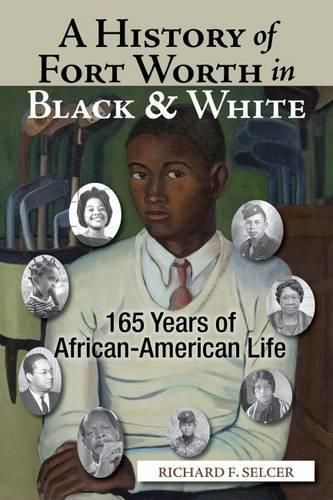Readings Newsletter
Become a Readings Member to make your shopping experience even easier.
Sign in or sign up for free!
You’re not far away from qualifying for FREE standard shipping within Australia
You’ve qualified for FREE standard shipping within Australia
The cart is loading…






This volume fills a long-empty niche on the Fort Worth bookshelf: a scholarly history of the city’s black community that starts at the beginning with Ripley Arnold and the early settlers, and comes down to today with our current battles over education, housing, and representation in city affairs. Profiles on some noted and some not-so-noted African Americans will appeal to both schools and general readers.
Using a wealth of primary sources, Richard Selcer dispels several enduring myths, for instance the mistaken belief that Camp Bowie trained only white soldiers, and the spurious claim that Fort Worth managed to avoid the racial violence that plagued other American cities in the twentieth century. Selcer arrives at some surprisingly frank conclusions that will challenge current politically correct notions.
Selcer does a great job of exploring little-known history about the military, education, sports, and even some social life and organizations. -Bob Ray Sanders, author of Calvin Littlejohn: Portrait of a Community in Black and White
$9.00 standard shipping within Australia
FREE standard shipping within Australia for orders over $100.00
Express & International shipping calculated at checkout
This volume fills a long-empty niche on the Fort Worth bookshelf: a scholarly history of the city’s black community that starts at the beginning with Ripley Arnold and the early settlers, and comes down to today with our current battles over education, housing, and representation in city affairs. Profiles on some noted and some not-so-noted African Americans will appeal to both schools and general readers.
Using a wealth of primary sources, Richard Selcer dispels several enduring myths, for instance the mistaken belief that Camp Bowie trained only white soldiers, and the spurious claim that Fort Worth managed to avoid the racial violence that plagued other American cities in the twentieth century. Selcer arrives at some surprisingly frank conclusions that will challenge current politically correct notions.
Selcer does a great job of exploring little-known history about the military, education, sports, and even some social life and organizations. -Bob Ray Sanders, author of Calvin Littlejohn: Portrait of a Community in Black and White